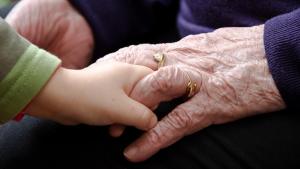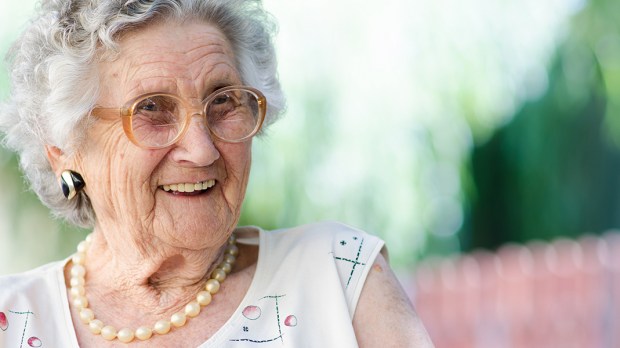Caring for our loved ones as they grow old can be both physically very tiring and emotionally draining. We talked with Claudine Badey-Rodriguez, a psychologist specialized in gerontology who co-authored When a Person’s Character Becomes Difficult With Age (Quand le caractère devient difficile avec l’âge), for some advice on how to cope with our aging relatives. After all, we want to help those close to us through these often frightening and confusing later years, at the same time as we are often managing our own young families, which can be a struggle in itself. Badey-Rodriguez, who also wrote Life in Retirement Homes, answered five common questions that those caring for the elderly may have.
Is it your duty to take care of elderly relatives?
Claudine Badey-Rodriguez: This might seem shocking, but the answer is not necessarily — at least, not in person. It all depends on your personal history. The simple fact of becoming a caregiver can create confusion in the generational hierarchy. On one hand, this can bring to the fore suffering, frustrations, and anger experienced during our childhood; on the other, if we received a lot of love growing up, we might experience the feeling of not doing enough for our parents. This situation of needing to care for an elderly parent can also stir rivalries between brothers and sisters, and sometimes the parents get involved, unwittingly or not. Each individual needs to establish what is the healthiest for them, weighing up the benefits and the risks: risking the feeling of guilt if we don’t get involved, or making the effort needed to give up some of our time to care for them, despite the complications. However, it is our responsibility to make sure there is a person, professional or not, dedicated to looking after our aging parents.

Read more:
5 things my young kids are learning from their elderly grandma
How do you avoid taking negative attitudes from your parents personally?
CBR: Start with a better understanding of the underlying issues, often unconscious, between us and our parents. We must also be aware that their negative thoughts, aggression, criticisms, etc., can be the sign of suffering a loss, whether it be their social role, their abilities, or self-esteem. The best thing to do is to listen to them, help them express what they’re feeling, reassure them, make them feel valued, try to change the subject when they’re complaining, and possibly seek medical help, as these symptoms might be a sign of an illness.
How do you establish boundaries?
CBR: We shouldn’t just accept every word and behavior from our parents under the pretext that they’re growing old. Start with understanding their little foibles – so you can avoid visiting at awkward times, or keep visits short – and set reasonable boundaries. We need to be aware of our own emotions, and what we’re able to cope with; finally, we have to explain this to our parents. Expressing ourselves to them is also a way of treating our parents as independent human beings. Furthermore, we must keep in mind that we’re caregivers, and not the parent of our parents, however hard that may be.

Read more:
“I can’t fix this…”: A male caregiver’s lament
How do you avoid becoming overwhelmed?
CBR: Here, anticipating all eventualities is key; organize a family meeting to divvy up different tasks, and find outside help for both you and your parents … making as many decisions together as possible.
How can you cope with feelings of guilt?
CBR: When a parent becomes dependent, it is difficult to avoid feelings of guilt. It’s actually what pushes us to do more at the expense of our own health. It’s important to recognize and to know what causes this guilt, then to take a step back and express these inner-most thoughts to a third party. That could be another member of your family, a doctor, a support group, or even a therapist. Help for caregivers is fundamental for the future.
This article was originally published in the French edition of Aleteia, and has been translated and/or adapted here for English speaking readers.

